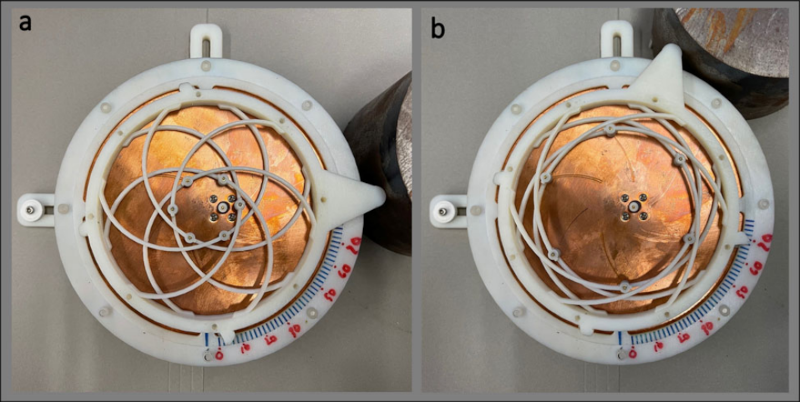
Antennas are a key component to any RF gadget. But antennas often only perform well over a narrow band of frequencies. For some applications, this is acceptable, but often you would like to reconfigure an antenna for different bands. Researchers at Penn State say they’ve developed a tunable antenna using compliant mechanisms and electromagnets. The new scalable design could work in small areas to provide frequency agility or beamforming.
The prototype is a circular patch antenna made with 3D printing. If you want to read the actual paper, you can find it on Nature Communications.
A compliant mechanism is one that achieves force and motion through elastic body deformation. Think of a binder clip. There’s no hinge or bearing. Yet the part moves in a useful way, using its own deformation to open up or grip papers tightly. That’s an example of a compliant mechanism. This isn’t a new idea — the bow and arrow are another example. However, because 3D printing offers many opportunities to build and refine devices like this, interest in them have increased in recent years.
We couldn’t help but notice that the antenna is a variation of a “compliant iris” like the one in the video below. You can find designs for these online for 3D printing, so if you wanted to experiment, you might think about starting there.
We’ve looked at compliant mechanisms before. Why would you want better chip-scale antennas? Why, indeed.
Electromagnetic Mechanism Makes Reconfigurable Antenna
Source: Manila Flash Report
0 Comments